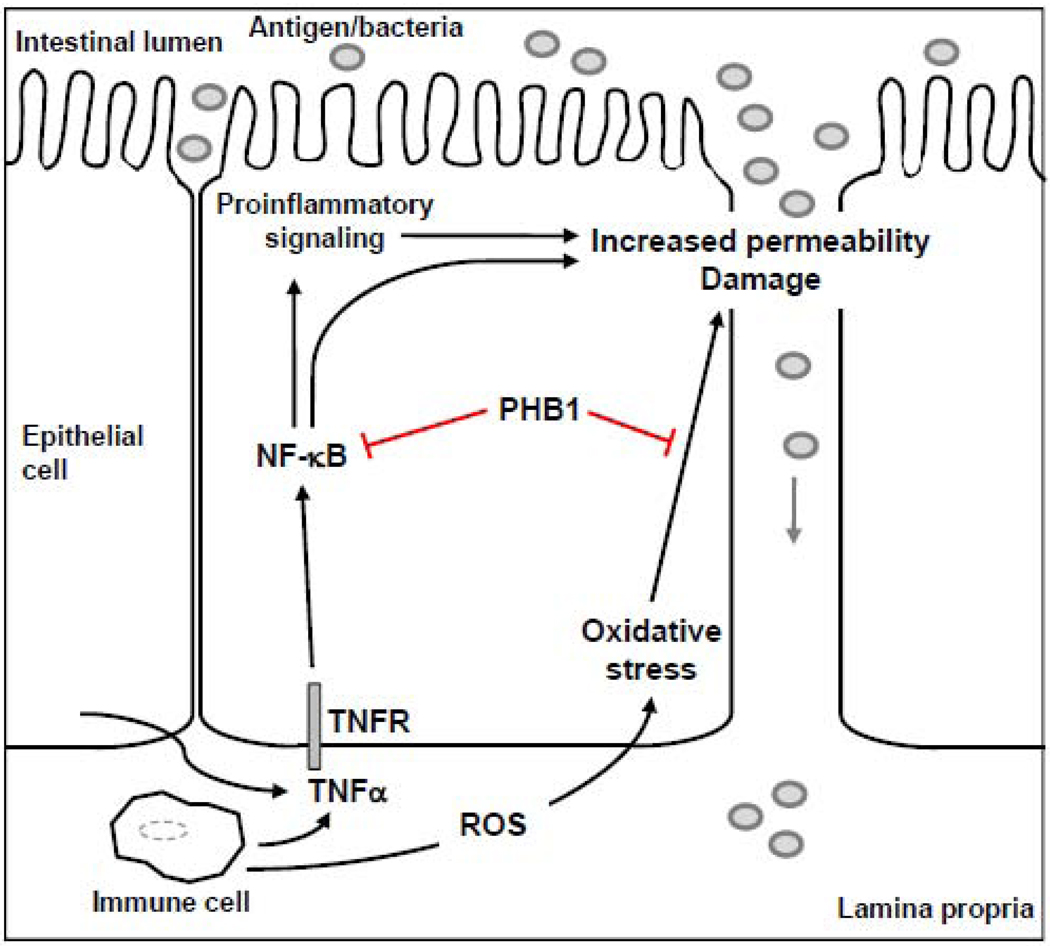Figure 3.
Cartoon representation of PHB1 in intestinal epithelial cells. In IBD, a chronic and exaggerated immune response ensues during which activated immune cells and intestinal epithelial cells release ROS and immunoregulatory cytokines including TNFα. ROS causes oxidative stress, leading to increased permeability and damage. Altered epithelial barrier function allows translocation of antigen/bacteria from the intestinal lumen to the lamina propria. TNFα activates the transcription factor NF-κB which can stimulate proinflammatory signaling and increase permeability. In intestinal epithelial cells PHB1 levels are decreased during inflammation. Restoration of PHB1 levels in these cells indicate that it inhibits oxidative stress and activation of NF- κB. NF-κB, nuclear factor-kappa B; TNFα, tumor necrosis factor alpha; TNFR, tumor necrosis factor receptor; ROS, reactive oxygen species.

